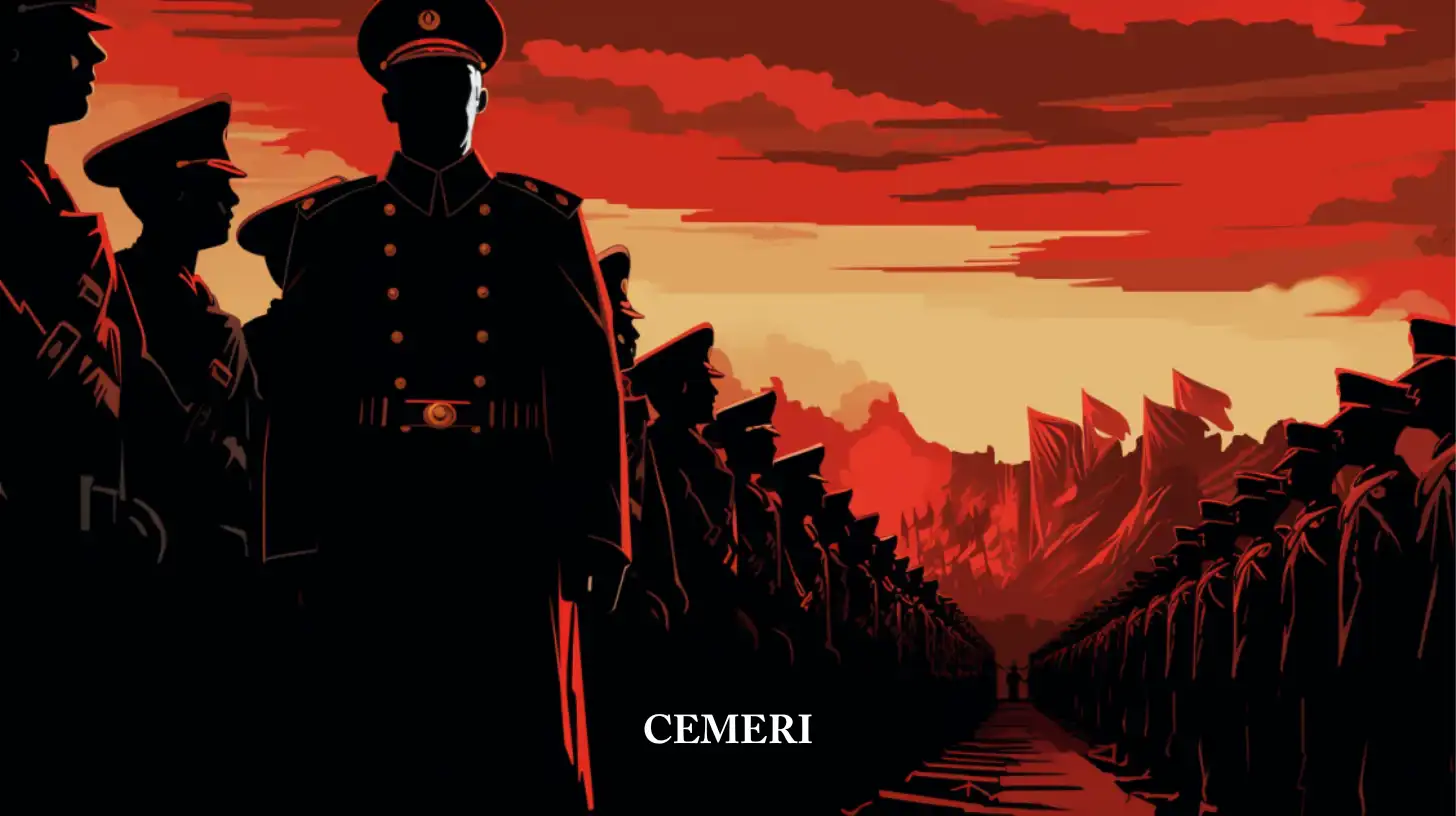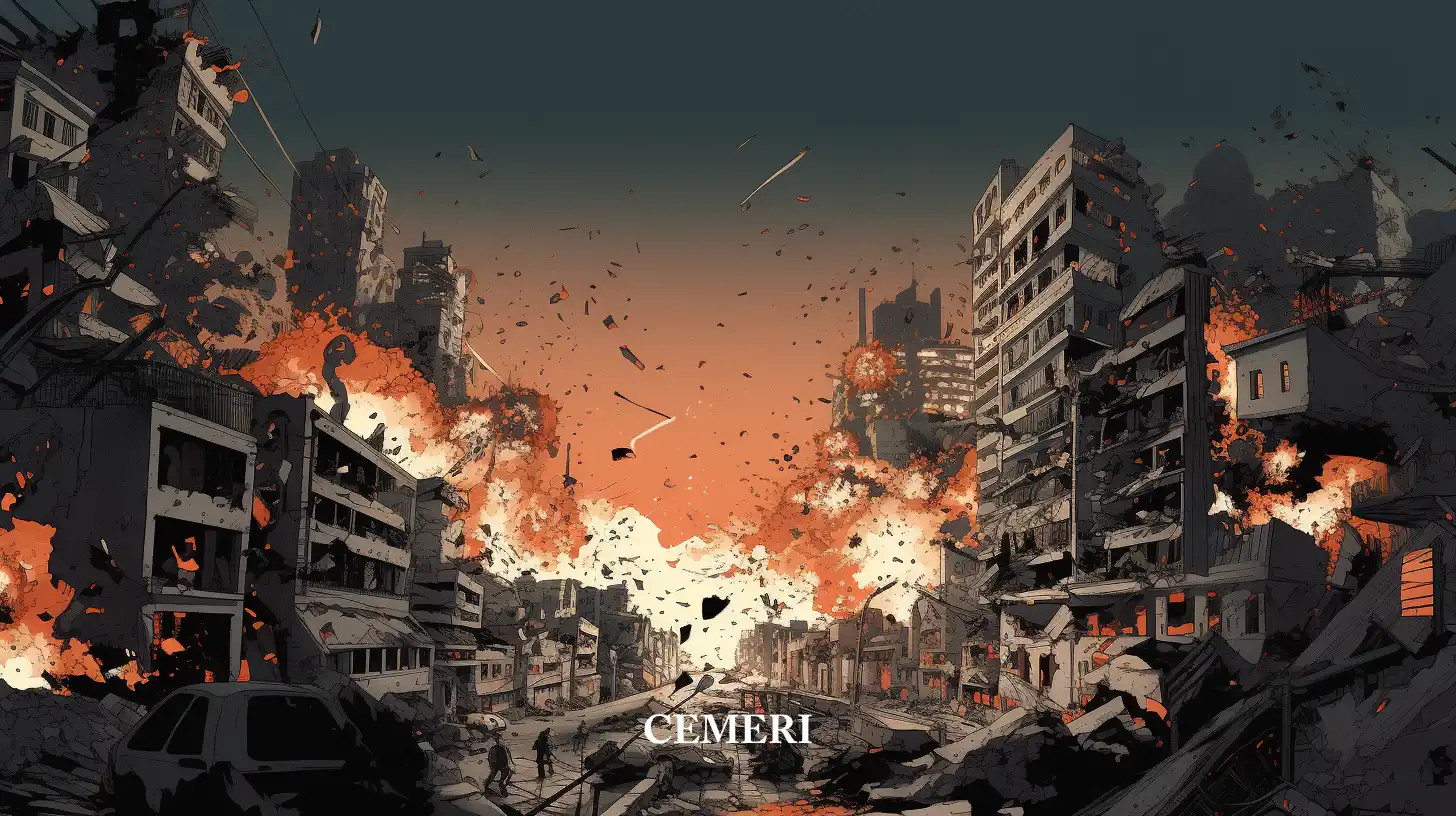Encyclopedia
Gilberto Morales
What is national security?
- National security is an ancient concept that has generated different meanings throughout history.

Safety is a basic and universal aspiration. Where there is no security, freedom is reduced. If security is lacking, the possibilities of economic and social progress of nations also decrease, for this reason, citizens claim it as a right, States are obliged to provide it. However, in a hyperconnected world with permanent transformation, the sources of insecurity multiply, follow one another, incessantly.
Terrorism, armed conflicts, organized crime, cyber threats, espionage, economic-energy crises, piracy, environmental risks, natural disasters. Faced with this scenario, security is not guaranteed, it requires resources, foresight as well as planning. For this reason, more and more States are developing strategies and creating organizations aimed at responding to the security challenges that their citizens currently face in a complex and global world.
1. Background of the concept
It goes back to the last months of World War II and the concept of National Security is used for the first time in the National Security Act in 1947, issued by President Harry Truman, since in that year four important things happen in the system American politician also in the area of Defense, Security and Intelligence: I) The Department of Defense is created, II) The first National Security Law is created, III) The Central Intelligence Agency is created. in English), IV) The Office of Counsel to the President of the United States on National Security is created.
2. National Security Doctrine
The Doctrine was a movement executed by the United States to stop the advance of communism. Its foundations are in the ideological battle between the United States and the Soviet Union, for which the Americans decided to implement in Latin American countries to stop the advance of this ideology.
In 1947, with Germany defeated, the power of the world was concentrated in the two powers of the time, which were the United States and the Soviet Union, which were nations that shared a fierce rivalry, for proving the superiority of one nation over another. . The victory of the security doctrine of the North Americans triumphed, with the consequences that are described: I) Communism remained as something bad for the population; II) The army gained greater strength; III) The rural population was greatly affected; IV) The power of the United States over Latin America was considerably consolidated.
3. Current concept of National Security
Since the 9/11 attacks (September 11, 2001), a large number of analyzes and reflections have proliferated regarding the implications and current events of this concept, even more so, after the dissemination of terrorist activities resulting from destabilization and internal wars. , as in the cases of Libya, Syria, the continuation of the War in Afghanistan. So terrorism, associated with National Security issues, have progressed to become International Security issues.
In the case of Latin America, the persistent decomposition regarding the conditions of Public Security have turned this issue into part of the National Security Agenda, although it should not be originally. Accordingly, in the 21st century, with the conditions observed in different parts of the world, it is already very difficult to divide between internal and external, for example, irregular migration added to the effects of climate change.
Consequently, the concept of National Security is an ideal state to which all countries aspire, in which the protection of the four pillars of a State must be guaranteed: the government, the territory, the population and the legal order, to make In the face of threats, there are more risks that come from abroad, coupled with a world as complex as it is now, also threats that come from within the borders of countries. Another important element is added to the analysis, the vulnerabilities, which can be derived from the geographical location, therefore, from the geopolitical relations developed in history, as well as the sociocultural or socioeconomic condition of the population of a certain State.
Rajoy (2013) specifies the advantages and benefits of having a solid National Security System, particularly in the Spanish case:
A secure environment in the multiple dimensions covered by National Security contributes decisively to well-being, progress and prosperity: it encourages investment, increases human capital flows, increases tourism, benefits quality of life and, above all, improves the perception of our country, both by Spaniards and by the international community. National Security allows us to advance together and also be recognized and valued abroad. (p.38)
4. Typology of threats to national security
The end of the Cold War caused the destatization of national and world problems, originating, diversifying and expanding transnational threats that were previously not considered or addressed by International Relations. In this way, these threats are characterized by the conceptual rupture of "national borders", acquiring the value of the global, demanding the participation of more than one State for its resolution and implying transnational interaction where some of the participants should be foreign. to the formal state and international apparatus.
In the same current, two grouping criteria of these threats emerge:
Focused on the perception of how dangerous it will be considered over time, the threat being imminent if it violates the daily life of citizens such as terrorism, organized crime, as well as the proliferation of small arms or long term if they could be resolved according to their temporary and circumstantial progress, such as environmental deterioration or massive migratory flows;
Proposed by Handley and Ziegler, who analyzed the threats according to whether the actor was state or not united, whether the power used was lethal or not, thus they were able to classify them into four categories: Type I, in which the State uses the hard power; Type II, where non-state actors aim to be lethal, such as in terrorism as well as information warfare, Type III, soft powers used by states; Type IV, non-state actors that do not use direct violence to achieve their objectives, exemplified by organized crime groups as well as the proliferation of small arms/light weapons. (Bartholome, 2006, pp.160-161)
5. Contrasting Examples of National Security Policies: Spain and Guatemala
According to Rajoy (2013) the lines of action of the Spanish National Security System are the following:
1. Provision of military capabilities that allow the fulfillment of the assigned missions and a level of credible deterrence. In any case, the National Defense will maintain the necessary capacities to react and neutralize any risk or threat of a military nature.
2. Maintenance of Spain's commitment to the collective security system based on integration into international organizations and through active participation in operations abroad, which will be combined with the defense of national interests. Actions will be carried out that contribute to the external action of the State and to the international position of Spain.
3. Maintenance by the Armed Forces of the effort to adapt to new realities and challenges through a process of continuous transformation, which allows efficient use of resources and pays special attention to people.
4. Adequacy of the adaptation effort to the current situation of economic crisis. Capacities will be shared with our allies in the field of international security organizations without affecting the fulfillment of the assigned missions.
5. Promotion of defense awareness and culture, pillars of support of Spanish society for National Defence, paying special attention to youth.
6. Strengthening of the Spanish Defense industrial fabric through promotion, projection and collaboration actions with the national capacities that, safeguarding their own operational needs, are deemed necessary. The links between the actors that make up the optimal architecture in this matter (Industry, University and Defense) will be strengthened. (p.40)
The areas of operation of the National Security System of Guatemala are the following:
a) Internal Security, preventively and directly confronts the set of risks and threats from common crime and organized crime.
b) Foreign Security, deals with the independence and sovereignty of Guatemala, the integrity of the territory, peace, as well as the preservation and strengthening of international relations.
c) Risk Management and Civil Defense, develops and implements policies for prevention, preparation, mitigation, response and recovery from natural, social and technological events that may affect the population;
d) State Intelligence, articulates the information and intelligence on internal and external threats, risks and vulnerabilities in the three aforementioned areas. (Technical Secretariat of the National Security Council, 2012, p.11).
The positions of Spain and Guatemala regarding the way of approaching National Security are clearly differentiated, since the European country executes it from a regionalist and globalist vision, while the Central American nation focuses on the dangers that are detrimental to its borders with their citizenship, but with an individualistic approach. Likewise, Spain offers a constructivist panorama of the security system by emphasizing the improvement of industrial processes.
Sources
Bartolomé, M.C. (2006). La Seguridad Internacional en el siglo XXI, más allá de Westfalia y Clausewitz (ANEPE, ed.). Academia Nacional de Estudios Políticos y Estratégicos. https://www.academia.edu/30904239/_LIBRO_COMPLETO_La_Seguridad_Internacional_en_el_Siglo_XXI_m%C3%A1s_all%C3%A1_de_Westfalia_y_Clausewitz
Rajoy, M. (2013). Estrategia de Seguridad Nacional: Un proyecto compartido. Gobierno de España. https://www.dsn.gob.es/sites/dsn/files/estrategia%20de%20seguridad%20nacional.pdf
Red de Seguridad y Defensa de América Latina –RESDAL-. (2012). Atlas Comparativo de la Defensa en América Latina y Caribe. RESDAL. Capítulo 18: Guatemala. Pp.198-205. https://issuu.com/politicaspublicas/docs/atlasdefensaal
Secretaría Técnica del Consejo Nacional de Seguridad. (2012). Política Nacional de Seguridad. Gobierno de Guatemala. https://www.resdal.org/caeef-resdal/assets/guatemala—-poli__tica-nacional-de-seguridad-de-guatemala.pdf

